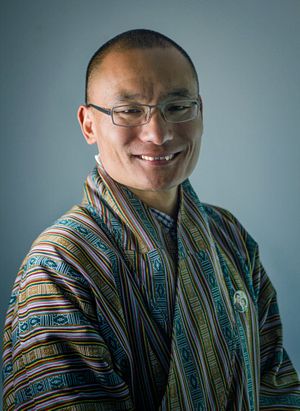In a signal that his foreign policy priorities include South Asia first and foremost, India’s new prime minister, Narendra Modi, will visit Bhutan later this month. According to reports from several Indian sources, the prime minister will likely visit Thimphu in the third week of June. Bhutan and India have friendly relations, with India being Bhutan’s largest trade partner and a huge source of development assistance. Given Modi’s decision to invite the leaders of all the South Asian Association for Regional Cooperation (SAARC) to his inauguration on May 26, the decision to make his first foreign trip to Bhutan underscores his commitment to ameliorating India’s neighborhood relations before focusing on the world abroad. Modi’s second known foreign visit will be to the United States in September.
According to government sources cited by The Indian Express, the decision to go to Bhutan was not immediately obvious. The prime minister also considered trips to Nepal, Bangladesh and even Afghanistan. For Modi, Bhutan is an important Indian partner. Given Bhutan’s dependence on India’s economy, the nation has largely been compliant with India’s national interests and has not taken any action in contravention of New Delhi’s will. In addition to commercial matters, Modi may enlist Bhutan’s assistance in internal security matters.
In the early 2000s, the Royal Bhutanese Army weeded out anti-state insurgents, including the United Liberation Front of Assam, that were using Bhutan as a base. In 2007, India and Bhutan renegotiated the basis of their bilateral relationship and signed a new treaty of friendship which has formed the basis of their relations ever since. Former prime minister Manmohan Singh visited Bhutan in 2008, pledging support for Bhutan’s gradual shift from monarchy to democracy. Furthermore, energy cooperation is an important issue in India-Bhutan relations. India has pledged to import 10,000 megawatts of electricity from Bhutan by 2020 and the two countries plan to cooperatively work on four hydropower projects that would together generate 2,120 megawatts, according to the Times of India.
Indian Ministry of External Affairs spokesman Syed Akbaruddin drove home the idea that Modi’s foreign policy would prioritize India’s immediate neighbors; he notes that while the “the prime minister’s inbox relating to foreign policy is very crowded … India’s foreign policy priorities are in the neighborhood.” Bhutan’s foreign minister Rinzin Dorji noted, following Bhutanese Prime Minister Tshering Tobgay’s visit to India for Modi’s inauguration, that Modi “is a prime minister who delivers and from the interaction, we could sense he has concerns for Bhutan and the region.”

































